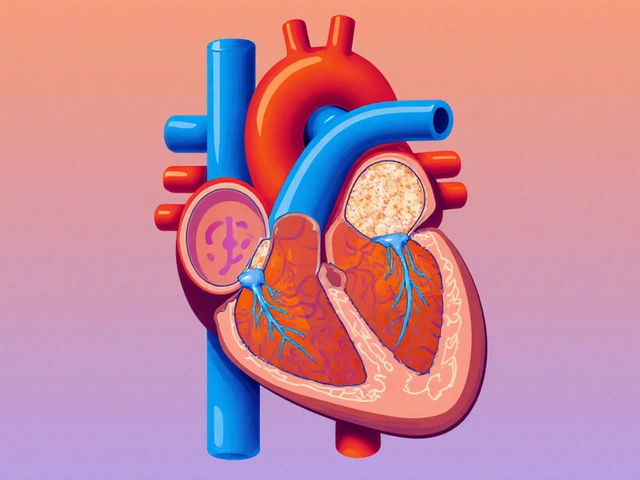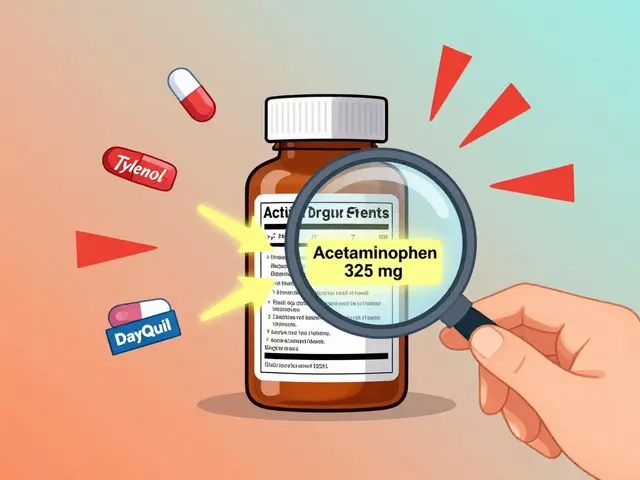Top 6 WebMD Alternatives for Reliable Health Information
December 19 2024Relationships: how medications, treatments and lifestyle affect each other
Medications don’t work in a vacuum. The other drugs you take, your health conditions, travel plans and even the pharmacy you buy from can change how a medicine behaves. This page collects practical advice and short guides so you can spot risky combos, choose safe alternatives, and keep treatment working when life gets messy.
Spotting risky drug relationships
First rule: know what you’re taking. Keep a simple list of every prescription, over‑the‑counter drug, supplement and herbal product. Show that list to any new doctor or pharmacist. Why? Some meds interact badly—raising side effects or cutting effectiveness. For example, certain antidepressants can matter if you’re starting other psychiatric treatments, and blood thinners change how you handle travel or other procedures.
Use reliable interaction checkers (NHS, Drugs.com, or a pharmacist’s tool) but don’t skip asking a real pharmacist or your prescriber. Online tools are great for a quick look, but they don’t replace clinical judgment, especially for complex cases like combining psychiatric meds with ECT or managing anticoagulants on long flights.
Practical tips for safe medication use and buying online
Buying meds online is common, but pick sources you can trust. Look for clear contact details, verified seals (like PharmacyChecker or CIPA for Canadian options), and a requirement for prescriptions when appropriate. If a price looks too good to be true, pause and verify. Read privacy and shipping policies—some sites hide extra fees or block refunds.
When switching drugs or trying an alternative (like swapping one beta‑blocker for another, or exploring hormone or thyroid options), compare active ingredients, usual doses, and likely side effects. Don’t decide based on price alone. A small dose change or different formulation can cause real effects; discuss changes with your doctor.
Travel needs planning. Carry medications in original packaging with your prescription or doctor’s note. Pack extra in case of delays. For long flights, if you’re on anticoagulants like apixaban, get up and move every 30–60 minutes, drink water, and consider compression socks—those simple steps lower DVT risk. For meds that need cold storage or timed doses, plan how to keep them safe and on schedule across time zones.
If you’re managing chronic conditions, use a single reliable pharmacy when possible. That helps pharmacists spot interactions across your meds and suggests safer alternatives when supply or price changes. Apps that compare coupons and prices can help, but double‑check the pharmacy behind the discount.
Finally, don’t ignore side effects. New symptoms after a drug switch or while combining treatments often signal an interaction. Stop nonessential supplements and contact a clinician if symptoms are severe. A quick call can prevent small problems from becoming big ones.
Want article links and practical how‑tos on these topics? Browse our tag posts for safe buying guides, specific drug comparisons, travel checklists, and interaction explainers—real tips you can use today.
 12 Jul
12 Jul
Navigating Relationships with Graves' Disease: Tips and Advice
Navigating relationships while dealing with Graves' Disease can be challenging, but not impossible. The blog post provides helpful tips that focus on open communication, understanding, and patience. It highlights the importance of educating loved ones about the disease to help them comprehend the physical and emotional changes it brings. The advice shared emphasizes on self-care, setting boundaries, and seeking professional help if needed. Lastly, it encourages individuals to remain hopeful and positive even in the midst of adversity.
Read More...




